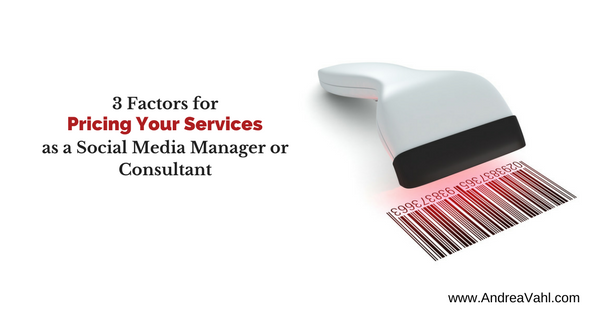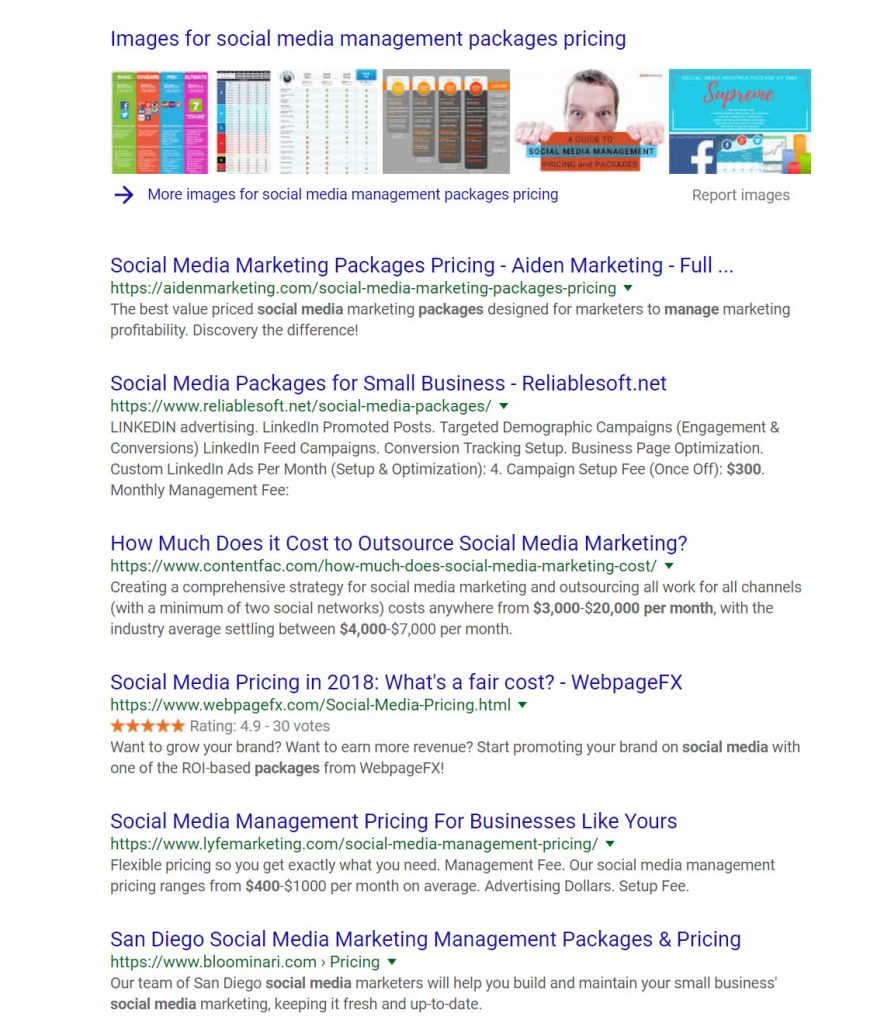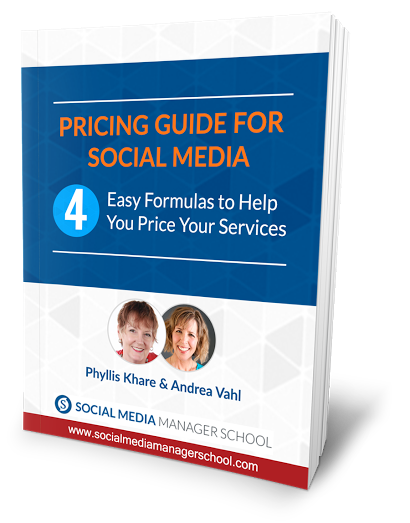Are you struggling with pricing your services as a social media manager or consultant? Not sure where to start or what to charge?
Understanding how to set your prices is one of the biggest questions we get in Social Media Manager School.
We ended up created a Social Media Manager Pricing Guide that helps walk you through pricing your hourly rate, your Retainer Rate, and a Project Fee depending on what type of service you are quoting.
But before you start with all kinds of math-y things, there are some bigger picture considerations. In this post, I’ll share 3 things you need to consider before pricing your services.
#1 The Market
The first step is to research your competitors and see what range people are charging for comparable services. This isn’t the be-all-end-all to your pricing and there will always be a range based on other factors but it’s nice to make sure you are in the same ballpark.
What we suggest is to start by Googling different “pricing” related keywords like “social media management packages” or “Facebook management pricing”. You may even search by the Images that come up for that term.
Click on some of the links and see if you can learn more about the agency or person who is offering the services. Things I like to look at are:
- The “About” page
- Testimonials
- What they are offering
- Their social profiles to see how active they are
Many sites will not put their prices on their website (and there are pluses and minuses to doing so) but many will have pricing.
The market may also depend on the type of niche you decide to serve or what country you are in. Focusing your business on serving artists is going to have a different pricing structure than serving larger corporations.
#2 Your Experience Level
When you start your business you won’t be able to charge the same rate that you will after several years of experience. But that can be a good thing for companies looking to hire people who are enthusiastic and excited to learn all the latest trends.
Don’t undercut yourself even if you are starting out. Remember that entrepreneurs will need to price their services higher than what you might make hourly at a company because of all the overhead.
And don’t forget to up your rates as you gain experience.
That’s the beautiful thing about working for yourself. You can get larger raises when you get more experience because you decide how you set your prices.
Also, as you get more experience, you effectively give yourself a raise because it takes less time to do the same work (as long as you are quoting a project rate rather than hourly).
#3 Time
When you are a serviced-based business, time is your most valuable asset. But you also have to estimate your time correctly in order to quote a project.
If you are new or haven’t done a particular task often, you will probably take more time to do things like research, scheduling, or working with a new tool. So there is a little learning curve.
I typically recommend testing a portion of a task (like writing 10 tweets) and then multiplying by the full scale of the project. I walk through how to do that when I show how to quote a project.
The other issue with time is that you need to factor in the fact that you can’t be productive 40 hours a week like you are at a traditional job (ok who am I kidding, no one is productive 40 hours a week).
You have business tasks like marketing, billing, writing blog posts, and other non-billable tasks. So you may only have about 20 hours a week that are spent on client work.
Factor that limited billable time in when you base your quotes on your “hourly project rate”.
In general, I think it is best to quote a project rather than bill by the hour but there can be cases for billing at your hourly rate.
To get to your hourly rate, it can help to work backwards. We cover how to do that (and give you a cool calculator) in our Social Media Manager Pricing Guide.
Of course, there will always be other factors that go into pricing your services – things like overhead, whether or not you outsource some of the work, your brand position, etc. But starting out with a little math helps get you on track to provide the best quote to your customer.
How about you, what factors do you struggle in pricing your services? Share your thoughts in the comments below!

























